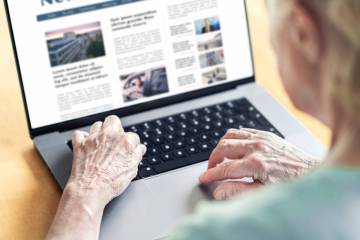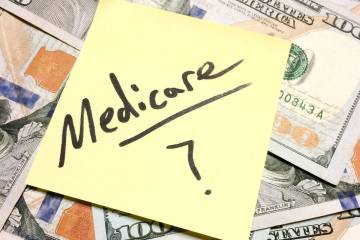Here’s the latest on Ebola around the country, world
JOURNALIST WITH EBOLA HAS PASSION FOR LIBERIA
PROVIDENCE, R.I. — A passion for Liberia and the plight of its people drove Ashoka Mukpo to work there, first to aid relief efforts and then as a photojournalist to tell its story. But Mukpo has an unusual story of his own: As an infant, he was identified as a reincarnated Tibetan lama, a role he chose not to pursue.
Mukpo, 33, was diagnosed Thursday with Ebola and was being cared for at a treatment center in the Liberian capital, Monrovia. His family said he was expected to leave there on Sunday and arrive at the Nebraska Medical Center in Omaha on Monday.
His mother, Diana Mukpo, comes from an upper-class aristocratic family in Great Britain. At age 16, she left boarding school in Scotland and married Tibetan Buddhist leader Chogyam Trungpa Rinpoche, who founded the Shambhala community that spread Buddhism in the West. She was one of several wives.
They moved to Boulder, Colorado, in the 1970s and set up a Buddhist center, where notables such as Allen Ginsburg, Joni Mitchell and William Burroughs studied and Trungpa advocated tantric sex.
After starting a family with Trungpa, Mukpo’s mother connected with another of her husband’s followers, Dr. Mitchell Levy, a Jewish man from New York.
Levy is Mukpo’s biological father, Mukpo said in an interview with the Dorje Shugden Buddhist website, but Trungpa raised Mukpo as his own son.
When Mukpo was just a few months old, he was recognized by another Buddhist lama as the ninth Khamnyon Tulku, or reincarnated lama, a spiritual leader.
Mukpo’s older half-brother, Gesar Mukpo, son of Diana Mukpo and Trungpa, also was named a tulku and succeeded his father as leader of the Shambhala community after his death in 1987.
After he died, Mukpo’s mother and Levy married and moved to Providence. Levy is medical director of the intensive care unit at Rhode Island Hospital and a professor and chief of pulmonary and critical care medicine at Brown University’s medical school. Mukpo’s mother is a horse trainer who owns a stable outside Boston.
Mukpo attended Moses Brown, a Quaker day school in Providence. He received degrees from Georgetown University and the London School of Economics.
His more traditional life sometimes caused angst.
“When you’re 15, you can’t say, ‘Dude, I’m a reincarnated spiritual master from the hills of Tibet, and my father was this womanizing, drinking, Tibetan-crazy-wisdom genius,’ without people thinking you’re weird,” he said in the Dorje Shugden interview.
In 2002, he traveled to Tibet with his parents to visit the monastery that’s his family’s spiritual home.
“Someone put a sick baby in front of my face and asked me to blow on it. I did. I’m not going to be the guy who says, ‘This whole thing doesn’t make sense for me, sorry!’” he said in the interview. “Sometimes I do feel like it wasn’t my decision to take this title on, but now I feel like someone put me in the position of abandoning it.”
Mukpo ultimately decided not to embrace his status as a reincarnated lama, Levy said.
“He’s proud of his street cred and his intellectual credibility that he feels he’s earned, and for him, the reincarnated tulku, although a powerful tradition and a very important tradition, I don’t think he wanted to feel like he was being handed something he didn’t earn,” Levy said.
Mukpo has worked at Human Rights Watch and spent two years in Liberia working as a researcher for the Sustainable Development Institute, a nonprofit shining light on concerns of workers in mining camps outside Monrovia.
Levy said his son returned to Providence in May and intended to pursue a career as a journalist. By August, he saw what was happening in Liberia and decided to return, Levy said.
“His intention in going back was to illustrate the tremendous burden and impact of the Ebola epidemic,” Levy said. “He sensed that the international community was isolating Liberia rather than reaching out to help them.”
Mukpo said he was filming inside and around clinics and high-risk areas but doesn’t know how he was infected with Ebola, Levy said.
Levy said he has been reassuring his son, who is staying in an isolation tent and will receive better care in the U.S., that he’ll recover.
Besides NBC, Mukpo has been working for Vice News and other media outlets. In an opinion piece in Al Jazeera America on Sept. 17, Mukpo wrote that in the last few weeks he had seen children close to death turned away from treatment centers and heard stories of people waiting days to be picked up by ambulances.
He called the American response to the crisis underwhelming and slow.
“The most critical element of all is time,” he wrote. “Every life saved matters.”
—
CREW ARRIVES TO CLEAN QUARANTINED TEXAS APARTMENT
DALLAS — A hazardous-materials crew arrived Friday at a Texas apartment where the U.S. Ebola patient stayed to collect bed sheets and towels used by the infected man before he was hospitalized.
The family living in the apartment has been confined to their home under armed guard while public-health officials monitor them — part of an intense effort to contain the deadly disease before it can get a foothold in the United States.
Louise Troh, who shares the apartment with her 13-year-old son and two nephews, said she is tired of being quarantined and wants authorities to decontaminate her home.
“Who wants to be locked up?” she said Thursday. Private security guards and sheriff’s deputies blocked the entrance to the 300-unit apartment complex.
Elsewhere, NBC News reported that an American freelance cameraman working for the network in Liberia has tested positive for the virus and will be flown back to the United States, along with the rest of the news crew.
A cleanup crew hired by the county and state paid an initial visit to the apartment Thursday evening to assess the job. They returned around midday Friday to complete the work, which was expected to take about three hours.
The family living there will be allowed to remain in the apartment during the cleaning. Earlier, officials had said they would have to be moved.
Items from both the apartment and from the hospital where Thomas Duncan is being treated, will be placed in secure containers and removed for disposal.
The first Ebola diagnosis in the nation has raised concerns about whether the disease that has killed 3,400 people in West Africa could spread in the U.S. Federal health officials say they are confident they can keep it in check.
The confinement order, which also bans visitors, was imposed after the family failed to comply with a request to stay home.
Judge Clay Jenkins, Dallas County’s top administrative official, said he went to the apartment with two epidemiologists to apologize for the delay in removing soiled items. He said officials are working to make sure the family is comfortable and to improve their accommodations.
“I am concerned for this family,” he said. “I want to see this family treated the way I would want to see my own family treated.”
Also Friday, Texas health officials said they had narrowed the group of people they were monitoring from as many as 100 to about 50 people who had some type of exposure to the Ebola patient in Dallas.
Texas Health Commissioner David Lakey said all 50 are meeting with health workers and having their temperatures taken daily. So far, none show symptoms of the virus. Ten are considered to be at higher risk and are being monitored more closely.
The virus that causes Ebola is not airborne and can only be spread through direct contact with the bodily fluids — blood, sweat, vomit, feces, urine, saliva or semen — of an infected person who is showing symptoms. Those fluids must also have an entry point.
For example, people might get infected by handling soiled clothing or bed sheets and then touching their mouth, or if they are not wearing gloves while doing those tasks and have a cut on their hand.
Duncan’s neighbors in the Liberian capital believe he become infected when he helped a sick pregnant neighbor a few weeks ago. It was not clear if he had learned of the woman’s diagnosis before traveling.
Nonetheless, Liberian authorities announced plans to prosecute Duncan when he returns, accusing him of lying on an airport questionnaire about not having any contact with an infected person.
CDC Director Tom Frieden dismissed suggestions that people traveling from West Africa should not be allowed into the U.S.
“The fact is that if we tried to seal the border, it would not work because people are allowed to travel,” he said Friday on ABC’s “Good Morning America.” Blocking travel, he said, “would backfire because it would make it harder to stop the outbreak.”
Duncan arrived in Dallas on Sept. 20 and fell ill a few days later. An emergency room sent Duncan home last week, even though he told a nurse he had been in West Africa.
In a statement issued late Thursday, Texas Health Presbyterian Hospital said it followed communicable disease protocols by asking Duncan if he had come into contact with anyone who was ill. He replied that he had not.
A flaw in the electronic health records systems led to separate physician and nursing workflows, meaning the travel history documented by nurses was not passed onto physicians, hospital spokesman Wendell Watson said. He said the system has been corrected.
Duncan’s symptoms included a 100.1 F temperature, abdominal pain, a headache and decreased urination, the hospital said. He said he had no nausea, vomiting or diarrhea. Based on that, the hospital decided to release him.
He returned two days later and has been kept in isolation since Sunday. Duncan was listed Thursday in serious but stable condition.
—
U.S. NURSES FEEL UNPREPARED TO HANDLE EBOLA PATIENTS
CHICAGO — Nurses, the frontline care providers in U.S. hospitals, say they are untrained and unprepared to handle patients arriving in their hospital emergency departments infected with Ebola.
Many say they have gone to hospital managers, seeking training on how to best care for patients and protect themselves and their families from contracting the deadly disease, which has so far killed at least 3,338 people in the deadliest outbreak on record.
The U.S. Centers for Disease Control and Prevention has repeatedly said that U.S. hospitals are prepared to handle such patients. Many infectious disease experts agree with that assessment.
Dr. Edward Goodman, an infectious disease doctor at Texas Health Presbyterian Hospital in Dallas that is now caring for the first Ebola patient to be diagnosed in this country, believed his hospital was ready.
The hospital had completed Ebola training just before Thomas Eric Duncan arrived in their emergency department on Sept. 26. But despite being told that Duncan had recently traveled from Liberia, hospital staff failed to recognize the Ebola risk and sent him home, where he spent another two days becoming sicker and more infectious.
“The Texas case is a perfect example,” said Micker Samios, a triage nurse in the emergency department at Medstar Washington Hospital Center, the largest hospital in the nation’s capital.
“In addition to not being prepared, there was a flaw in diagnostics as well as communication,” Samios said.
Nurses argue that inadequate preparation could increase the chances of spreading Ebola if hospital staff fail to recognize a patient coming through their doors, or if personnel are not informed about how to properly protect themselves.
At Medstar, the issue of Ebola training came up at the bargaining table during contract negotiations.
“A lot of staff feel they aren’t adequately trained,” said Samios, whose job is to greet patients in the emergency department and do an initial assessment of their condition.
So Young Pak, a spokeswoman for the hospital, said it has been rolling out training since July “in the Emergency Department and elsewhere, and communicating regularly with physicians, nurses and others throughout the hospital.”
Samios said she and other members of the emergency department staff were trained just last week on procedures to care for and recognize an Ebola patient, but not everyone was present for the training, and none of the other nursing or support staff were trained.
“When an Ebola patient is admitted or goes to the intensive care unit, those nurses, those tech service associates are not trained,” she said. “The X-ray tech who comes into the room to do the portable chest X-ray is not trained. The transporter who pushes the stretcher is not trained.”
If an Ebola patient becomes sick while being transported, “How do you clean the elevator?”
Nurses at hospitals across the country are asking similar questions.
A survey by National Nurses United of some 400 nurses in more than 200 hospitals in 25 states found that more than half (60 percent) said their hospital is not prepared to handle patients with Ebola, and more than 80 percent said their hospital has not communicated to them any policy regarding potential admission of patients infected by Ebola.
Another 30 percent said their hospital has insufficient supplies of eye protection and fluid-resistant gowns.
“If there are protocols in place, the nurses are not hearing them and the nurses are the ones who are exposed,” said RoseAnn DeMoro, executive director of National Nurses United, which serves as both a union and a professional association for U.S. nurses.
Unlike influenza or the common cold, which can be spread by coughing and sneezing, Ebola is only spread by contact with bodily fluids from someone who is actively sick. That means the risk to the average person is low, but for healthcare workers, the risk is much higher.
As of Aug. 25, more than 240 healthcare workers have developed the disease in Guinea, Liberia, Nigeria, and Sierra Leone, and more than 120 have died, according to the World Health Organization.
Many of these infections occurred when healthcare workers were removing the personal protective gear - masks, gowns, gloves or full hazmat suits used to care for the patients, said biosafety experts.
Sean Kaufman, president of Behavioral-Based Improvement Solutions, an Atlanta-based biosafety firm, helped coach nurses at Emory University through the process of putting on and taking off personal protective equipment (PPE) while they were caring for two U.S. aid workers flown to Atlanta after becoming infected with Ebola in West Africa.
Kaufman became known as “Papa Smurf” to the Emory nurses because of the blue hazmat suits he and others wore that resembled the cartoon character.
“Our healthcare workforce goes through so many pairs of gloves that they really don’t focus on how they remove gloves. The putting on and the taking off doesn’t occur with enough attention to protect themselves,” he said.
Nurses say hospitals have not thought through the logistics of caring for Ebola patients.
“People say they are ready, but then when you ask them what do you actually have in place, nobody is really answering that,” said Karen Higgins, a registered nurse at Boston Medical Center.
Higgins, an intensive care unit (ICU) nurse, said hospital officials have been teaching nurses on one of the regular floors how to care for an Ebola patient.
“I said, well, that’s great, but if the patient requires an ICU, what is your plan,” she said. “They looked at me blankly.”
—
LIES, IBUPROFEN CAN GET YOU THROUGH AIRPORT EBOLA SCREENING
NEW YORK — People who contract Ebola in West Africa can get through airport screenings and onto a plane with a lie and a lot of ibuprofen, according to healthcare experts who believe more must be done to identify infected travelers.
At the very least, they said, travelers arriving from Ebola-stricken countries should be screened for fever, which is currently done on departure from Liberia, Guinea and Sierra Leone. But such safeguards are not foolproof.
“The fever-screening instruments run low and aren’t that accurate,” said infection control specialist Sean Kaufman, president of Behavioral-Based Improvement Solutions, a biosafety company based in Atlanta.
“And people can take ibuprofen to reduce their fever enough to pass screening, and why wouldn’t they? If it will get them on a plane so they can come to the United States and get effective treatment after they’re exposed to Ebola, wouldn’t you do that to save your life?”
On Thursday, Liberia said the first Ebola patient to be diagnosed in the United States had lied on a questionnaire at the Monrovia airport about his exposure to an Ebola patient. He flew to Brussels and then Dulles airport outside Washington, D.C., before landing in Dallas on Sept. 20.
The traveler, Thomas Eric Duncan, had no symptoms when he left Liberia, and fever scans there had shown a normal body temperature of 97.3 degrees Fahrenheit, U.S. health officials said. He therefore could not have been identified through examination as carrying the Ebola virus.
His arrival and hospitalization in Dallas have underscored how much U.S. authorities are relying on their counterparts in West African countries to screen passengers and contain the worst Ebola outbreak on record.
Part of the screening burden rests on connecting airports.
For example, Kaufman flew from Monrovia to Casablanca to London to Atlanta. He was fever-screened in Monrovia and Casablanca, but not London’s Heathrow, he said, and not when he arrived in Atlanta.
“At Heathrow, there were no questions about where I had come from,” he said. “I offered the information to the official in Atlanta, and he said, ‘Thank you. Be safe.’”
In August, experts from the U.S. Centers for Disease Control and Prevention (CDC) began teaching airport workers in Monrovia and other cities in the Ebola zone to conduct screenings, CDC medical worker Tai Chen said in an interview.
Ebola cases and deaths have been reported in Guinea, Liberia, Sierra Leone, Nigeria and Senegal. The World Health Organization has put the death toll at 3,338 out of 7,178 cases since March.
The CDC also worked with Liberian authorities to develop the questionnaire that was completed by Duncan: before travelers enter Roberts International Airport in Monrovia they are asked if they have had contact with anyone showing symptoms of Ebola.
There are at least two other screening points before a passenger is allowed to board a plane, with trained airport personnel asking about exposure to Ebola in the previous 21 days and any symptoms including fever, severe headache, bleeding, vomiting, diarrhea, and abdominal pain.
This process relies on an honor system, Chen said.
Officials at the CDC and the Department of Homeland Security would not say if they are considering using hand-held fever detectors on passengers arriving at U.S. airports. But Homeland Security spokeswoman Marsha Catron said the agency “will not hesitate to execute additional safety measures should it become necessary.”
CDC Director Dr. Thomas Frieden cautioned on Thursday that a more restrictive approach to travel could make the Ebola outbreak harder to contain.
“The approach of isolating a country is going to make it harder to get help into that country,” he said.
FEVER DETECTION
Virologist Heinz Feldmann of the National Institute of Allergy and Infectious Diseases has studied Ebola for years and helped develop an experimental Ebola vaccine. He told Science magazine in September that airport screeners in Monrovia, where he spent three weeks, “Don’t really know how to use the devices.”
He said he saw screeners record temperatures of 32 degrees C (90 F), which is so low it “is impossible for a living person.”
Feldmann said in an email that according to his colleagues who have returned from Liberia in the last few days procedures for taking temperatures and doing clinical checks have improved.
Since August, major U.S. airports that receive international flights have displayed signs alerting passengers to the presence of Ebola in West Africa and telling them to be on the look out for symptoms, said Customs and Border Protection (CBP) spokeswoman Jennifer Evanitsky.
On Wednesday, customs personnel began distributing information prepared by the CDC describing Ebola symptoms and noting, “You were given this card because you arrived to the United States from a country with Ebola.” It tells travelers that if they were exposed to Ebola overseas, “call your doctor even if you do not have symptoms.”





















